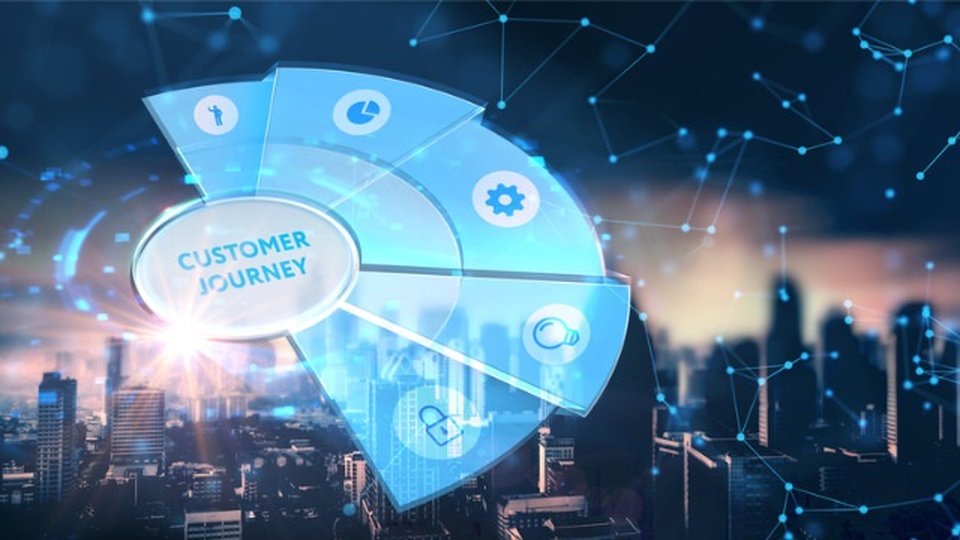Marketing
Key to retailers’ success post-COVID-19: 4 necessary customer experience practices
Kelly Ungerman, senior partner at McKinsey & Company, explains how the 'new normal' of retail and business is forcing a rethinking of what customer care means. She believes it's time for customer experience leaders to position themselves at the forefront of the longer-term shifts in consumer behavior that result from this crisis.

August 12, 2020 by Kelly Ungerman — partner, mckinsey
In just a few months, the ongoing coronavirus pandemic has overwhelmed lives and livelihoods around the globe. According to McKinsey & Company's latest US Consumer Sentiment survey, conducted from July 7-12, 2020 of 1,923 adults, only a third of U.S. consumers are optimistic about an economic recovery in the next two-to-three months, with most Americans believing the economy will be impacted for more than six months.
In addition, just under half (41%) of consumers reported a reduction in spending in the last two weeks, and looking ahead, 28% of consumers say they will reduce their spending over the next two weeks.
"This new normal" has forced a rethinking of what customer care means. Suddenly, examinations of customer decision journeys and satisfaction metrics to inform what customers want, have given way to an acute urgency to address what they need.
Particularly in times of crisis, a customer's interaction with a company can trigger an immediate and lingering effect on his or her sense of trust and loyalty. Millions have been furloughed and have retreated into isolation. Now, with economies starting to re-open, consumers have real concerns about safety and stability. A primary barometer of their customer experience will be how the businesses they frequent and depend upon deliver experiences and service that meets their new needs with empathy and care.
Now is also the time for customer experience leaders to position themselves at the forefront of the longer-term shifts in consumer behavior that result from this crisis. Keeping a real-time pulse on changing customer preferences and rapidly innovating to redesign journeys that matter to a very different context will be key.
With this in mind, following are four customer experience practices that can frame short-term responses, build resilience, and prepare retailers for success in the days after COVID-19:
1. Focus on fundamentals: Connect and care
Now more than ever, people need extra information, guidance, and support to navigate a novel set of challenges. They want a resource they can trust, that can make them feel safe when everything seems uncertain, and that offers support when there are so many unknowns. A baseline starting point: staying true to company values and purpose.
Our research shows that 64% of customers choose to buy from socially responsible brands, a figure that has grown significantly in the past two years, according to Edelman. The way retailers step up to play this role for their customers, their employees, and the broader community is likely to leave lasting impressions in customers' minds.
2. Meet your customers where they are
Customers' normal patterns of life have completely shifted. Simple activities like a trip to the grocery store or dining out with friends, where permitted, can be difficult and risky.
In the U.S., McKinsey's research found that 70 % of consumers are waiting for additional safety indicators beyond official lifting of restrictions before restarting regular out-of-home activities.
Given this, customers need digital, at-home, and low-touch options. Digital-led experiences will continue to grow in popularity once the coronavirus is quelled, and retailers that act quickly and innovate in their delivery model to help consumers navigate the pandemic safely and effectively will establish a strong advantage.
3. Reimagine customer experience to drive loyalty
The COVID-19 crisis will end at some point. We expect changes in consumer preferences and business models to outlast the immediate crisis. In fact, McKinsey's survey found that consumers largely expect to adopt long-term behavioral changes that will last beyond COVID-19, reporting an intent to shop online even as quarantining restrictions loosen.
The crisis has also shattered brand loyalties, with 75% of consumers trying a new shopping behavior, including trying new brands and places to shop, with more than 60% intent to continue post the crisis. Shoppers are shifting brand and retailer preferences, citing availability, convenience and value as the top three reasons for switching.
Leading retailers will deliver on the customer experiences that are emerging as most important in the "next normal" to secure customer loyalty, while finding ways to save and self-fund new growth initiatives.
4. Build capabilities for the next normal
Maintaining a strong customer experience in crisis requires rapid research to understand changing dynamics and new pain points as well as agile innovation to address them. Customer leaders who master that approach will create value for consumers in high-priority areas and in an environment of increased competition.
One potential way to speed up decision making is to develop and manage high-performing, virtual agile teams around specific sources of revenue. This allows these agile squads, which should include agency partners where appropriate, to have the ability to make swift decisions across key areas based on near real-time data.
In this sense, agile means putting in place a new operating model built around the customer and supported by the right data, processes and governance. Cut through drawn-out 'boardroom' debates. Let the customer vote. Agile sales organizations, for example, continuously prioritize accounts and deals based on field data, and decide quickly where to invest. Similarly, fast decision making between local sales and global business units and the rapid reallocation of resources between them will likely require a stable sales-pipeline-management process — with the data to inform what is working/what is not.
A whole new world
Customer experience has taken on a new definition and dimension in the overwhelming challenge of COVID-19. Retailers who seize this moment to innovate during this pandemic and anticipate how customers will change their habits will build stronger relationships that will endure well beyond the crisis's passing.
Those relationships will be the key to all businesses regaining the performance they had achieved before the pandemic struck.
Kelly Ungerman is a senior partner at McKinsey & Company.
 ChatGPT
ChatGPT Grok
Grok Perplexity
Perplexity Claude
Claude




